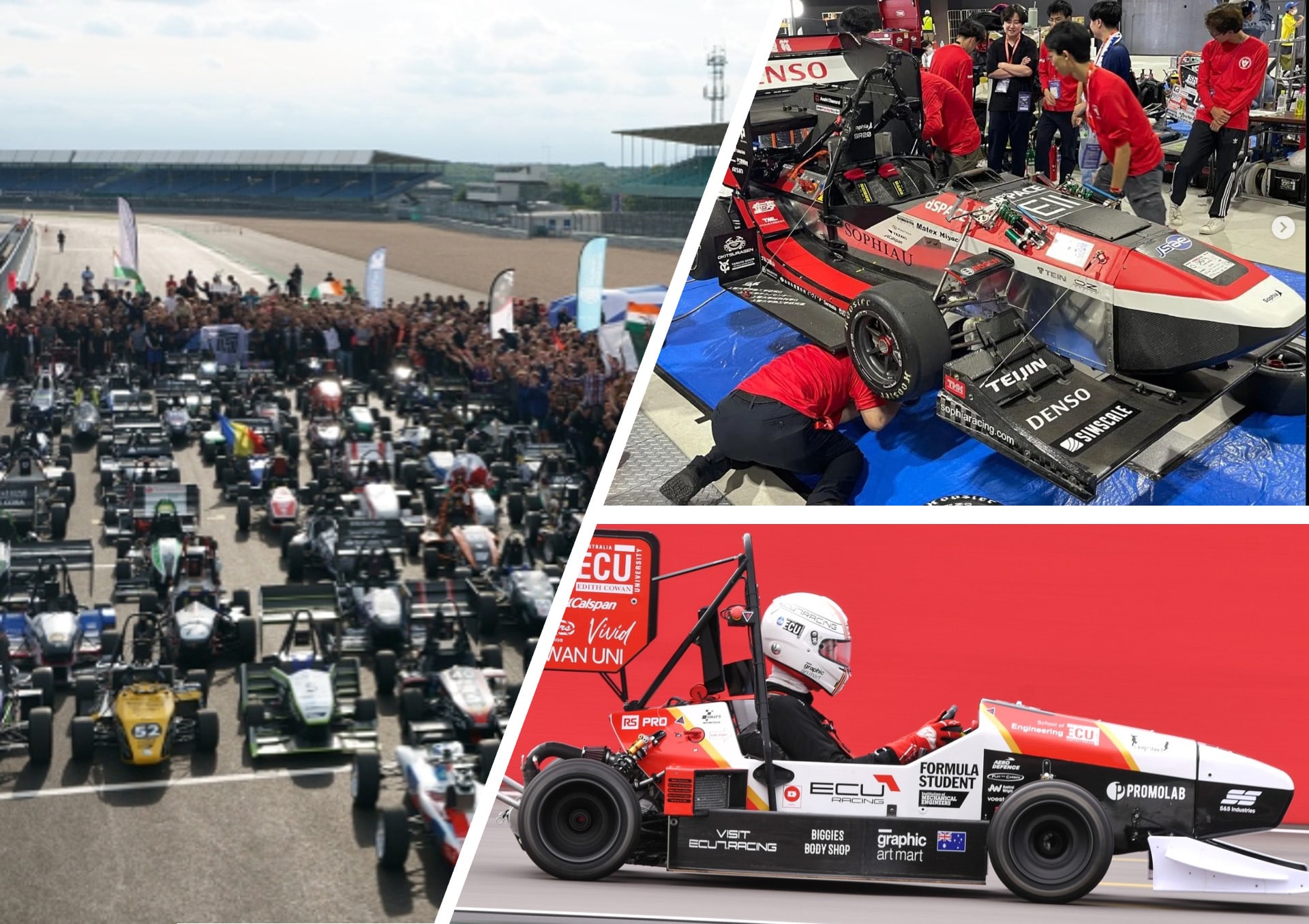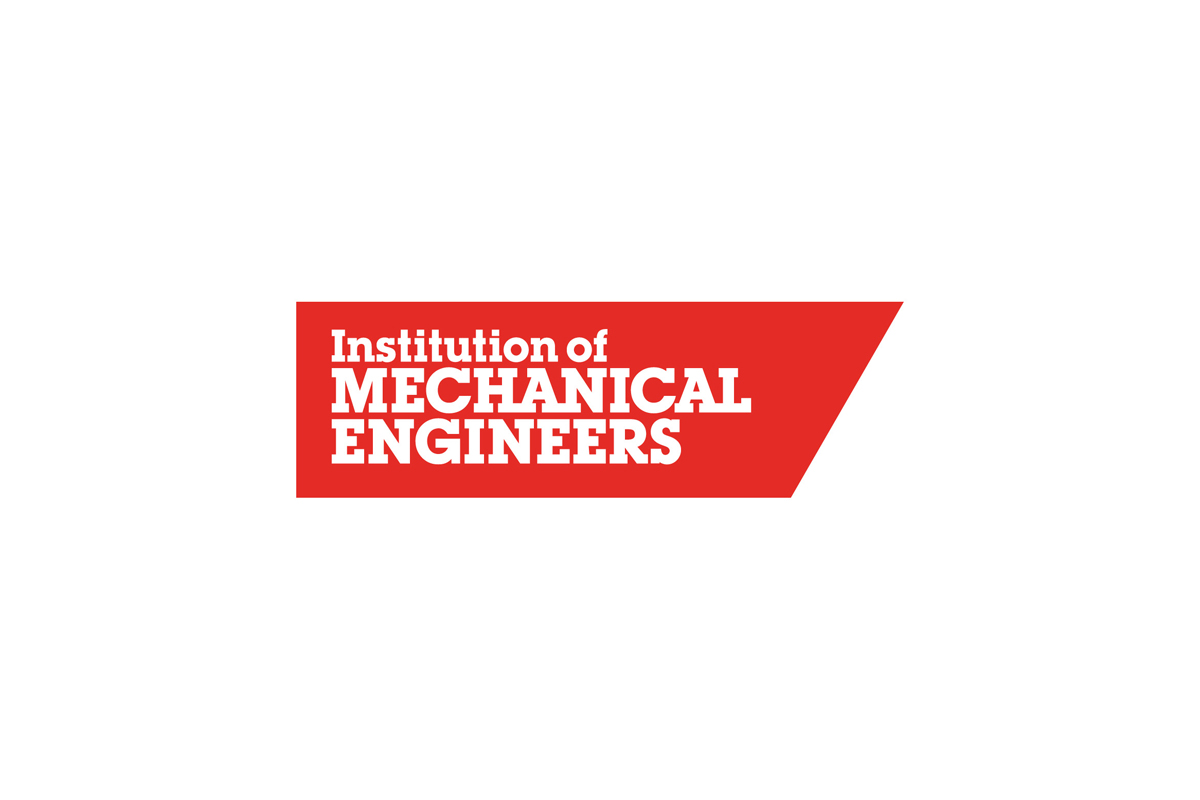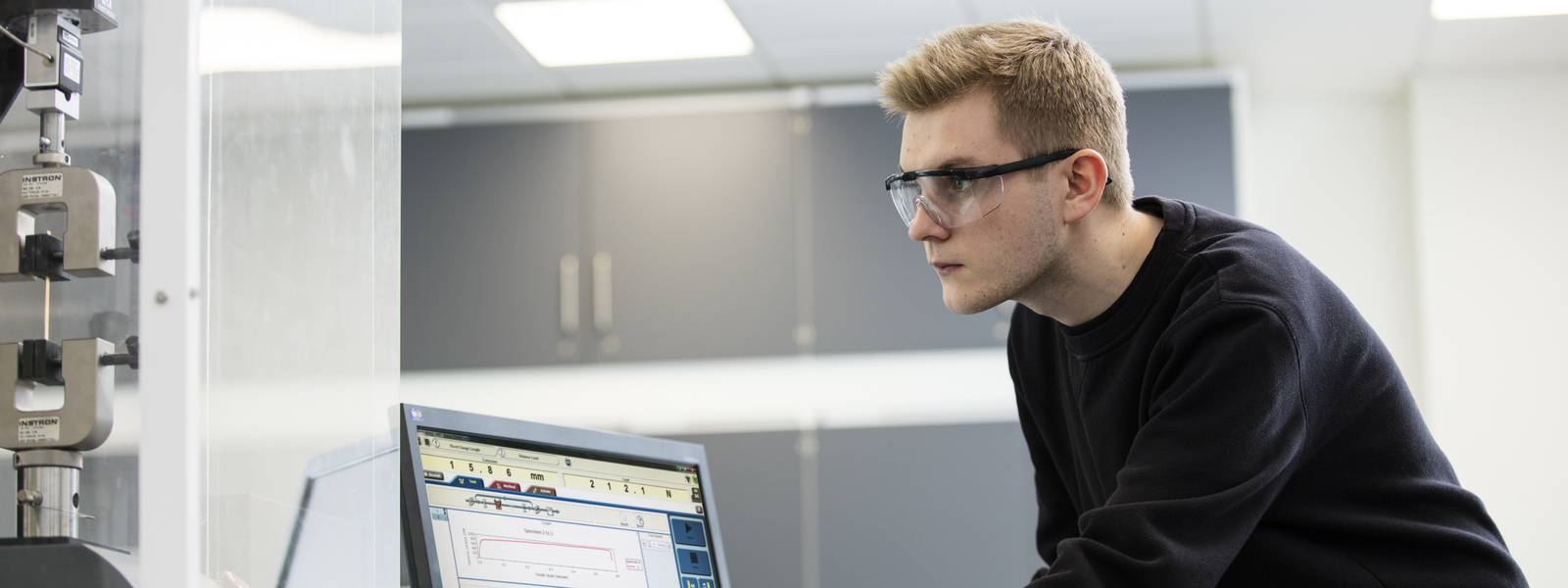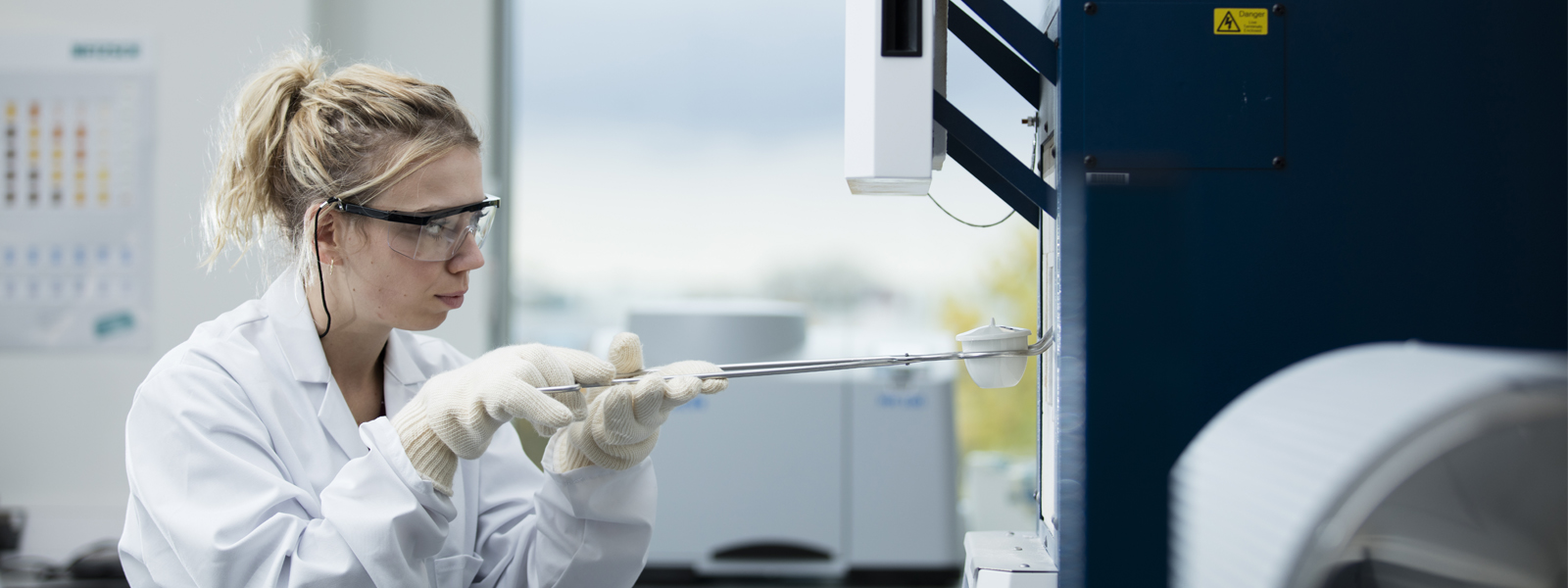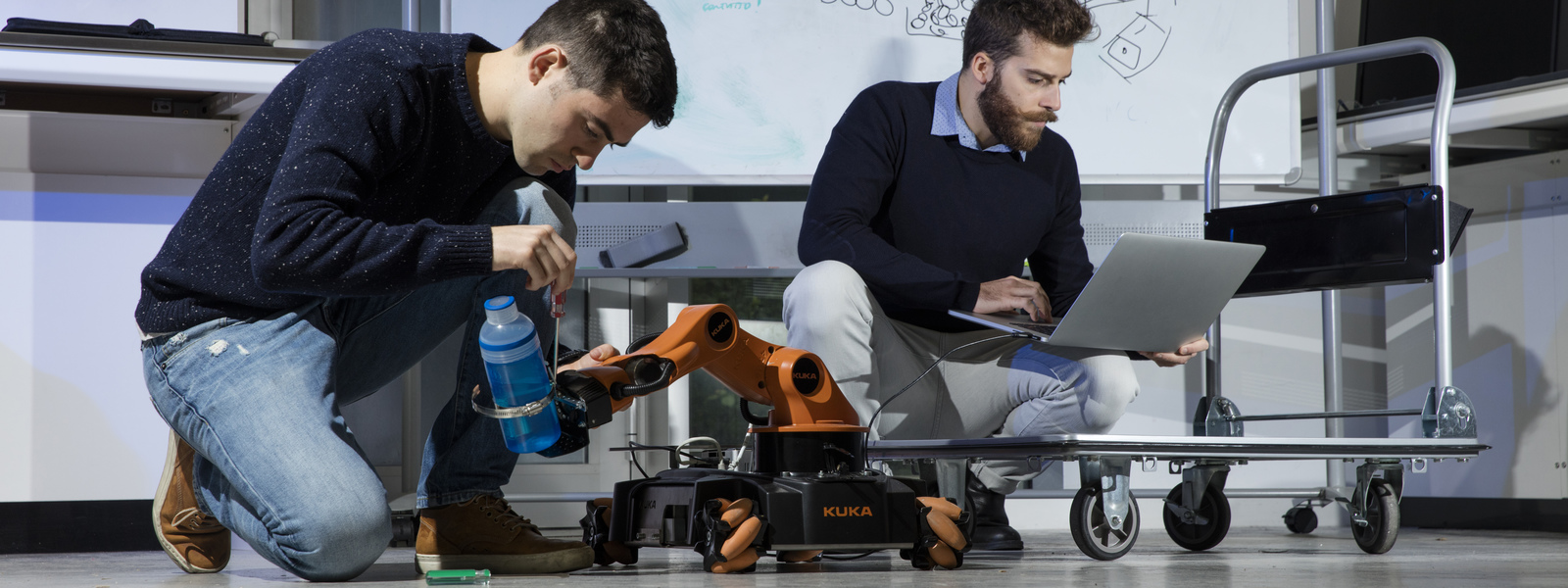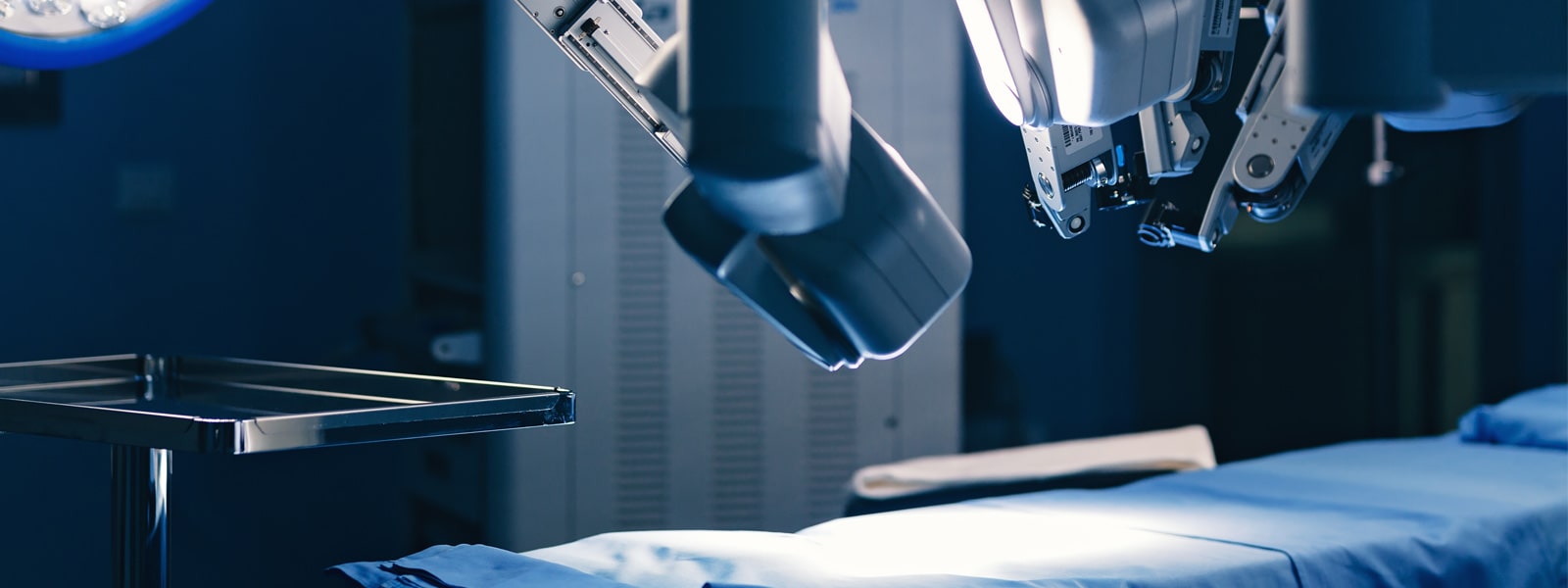Module Overview
The selection of materials and manufacturing method is an integral part of the design and manufacturing procedure for producing parts and products. The purpose of this module is to provide students with the opportunity to learn how to select appropriate materials, processing methods and manufacturing systems to produce components and products, both existing and novel. The student is introduced to contemporary manufacturing processes and systems in an effort to select effective and efficient manufacturing processes and systems.
Module Overview
The individual project aims to provide students with a learning experience that enables them to carry out independent research, and to integrate many of the subjects they have studied throughout their degree. Students are expected to plan, research and execute their task while developing skills in critical judgement, independent work and engineering competence. Students have the opportunity to gain experience in presenting and reporting a major piece of engineering work, of immediate engineering value, at a level appropriate for an honours degree student.
Module Overview
The purpose of this module is to enable students to deepen their understanding of the key engineering materials with respect to material characteristics, their internal aspects, mechanical as well as the physical properties. This module aims to consolidate students' learning from other modules within the areas of engineering science, materials, manufacturing technology and manufacturing processes.
Module Overview
The aim of this module is to give students the opportunity to experience a real engineering design situation as part of a group. Students have the opportunity to gain an understanding of strategic, operational, environmental and ethical issues related to new product design and development through a series of lectures covering an appreciation of market and societal dynamics and its effect on the design of new products. This module provides students with the opportunity to understand the tools and techniques available to facilitate sustainable product design and provide knowledge of the product design processes that can reduce environmental impacts and promote sustainable practices.
Module Overview
The aim of this module is to provide students with the opportunity to learn the background into combustion theory. Students will be introduced to traditional and renewable fuels, their combustion and utilisation and the resulting environmental impacts. Combustion applications for energy production will be introduced along with the politics revolving around these energy applications. The module will also consider energy policy in terms of usage.
Module Overview
The purpose of this module is to introduce the full Navier-Stokes equations and give the physical significance of each term in the equations. Students are introduced to CFD techniques appropriate for practical engineering applications, (the finite volume method), and they have the opportunity to gain practical, hands-on experience of commercial CFD packages. This module offers students the opportunity to model industrial fluid dynamics and heat transfer problems.
Module Overview
The aim of this module is to provide students with an understanding of the machines used in power generation applications, with a main focus on the principles of operation of machines used in base load power generation (gas turbines), but all rotating machines in power generation are considered. Students may then develop a methodology for measuring the impact of machines from energy and materials usage, standpoints, and to better understand where opportunities exist to increase the efficiency of energy machines, systems and devices.
Students will have the opportunity to build models of mass and energy flow through existing and proposed machines. These models are then used to pinpoint the most efficient and least efficient steps of device operation. This syllabus can be divided into two topics —
Fundamentals of Machines in Power and Energy:
The module begins with the theory of gas turbines, based on fundamental thermodynamic and fluid mechanic analyses and introduces methods for improving efficiencies and increasing specific work outputs.
Energy Systems Analysis:
Students may strengthen and expand their fundamental knowledge of thermodynamics, and apply this to develop a better understanding of energy systems and machine systems.
Module Overview
The purpose of this module is to introduce students to the theory and practice of the finite element method, with applications in stress analysis, heat transfer, and general field problems in order to complement other modules in these subjects. Students have the opportunity to learn of the capabilities and limitations of the finite element method and the practical problems involved in successfully modelling engineering structures and components.
Module Overview
This module is intended to introduce students with the fast growing area of consumer electronics design.
Apart from interface and size issues, portable consumer electronics present some of the toughest design and engineering challenges in all of technology. This module breaks the complex design process down into its component parts, detailing every crucial issue from interface design to chip packaging, focusing upon the key design parameters of convenience, utility and size.
Module Overview
The aim of this module is to enable students to gain knowledge and understanding of the principles and other key elements in robotics, its interdisciplinary nature and its role and applications in automation.
The module starts with the history and definition of robotics and its role in automation with examples. The module continues by studying a number of issues related to classifying, modelling and operating robots, followed by an important aspect of the robotics interdisciplinary nature i.e. its control and use of sensors and interpretation of sensory information as well as vision systems. Students will also have the opportunity to be introduced to the topics of networked operation and teleoperation, as well as robot programming
Module Overview
The aim of this module is to introduce students to theory and methodology of advanced techniques relevant to engineering systems, in order to design and implement filters and systems.
System identification is a general term to describe mathematical tools and algorithms that build dynamic models from measured data. A dynamic model in this context is a mathematical description of the dynamic behaviour of a system or process in either the time or frequency domain. Students are given the opportunity to investigate methods by which they can perform useful operations on signals in either discrete or time-varying measurement.
Module Overview
The purpose of this module is to analyse electrical machines, switched mode power-electronic convertors and design power systems for medium to high power applications. Students will have the opportunity to examine the operation characteristics and capabilities of commonly used systems and their control methods.
In addition, students may examine the methods and issues surrounding transmission of electrical power, including insight and understanding of power system protection applications and the effects of system design on power quality.
Module Overview
In control engineering, a state-space representation is a mathematical model of a physical system as a set of input, output and state variables. Students have the opportunity to explore different methods of resolving the control variables in order to analyse systems in a compact and relevant way.

